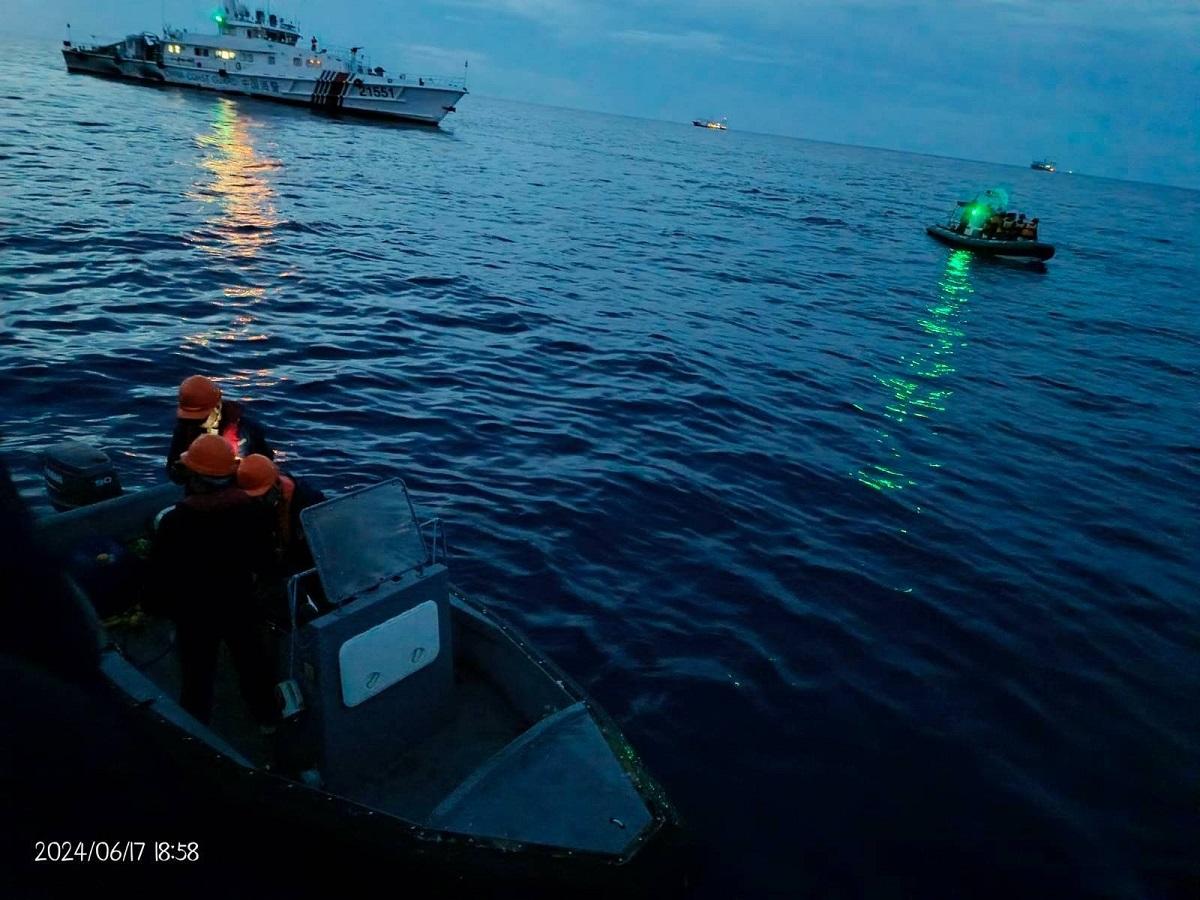NSC believes China looking to de-escalate tensions in WPS

The National Security Council (NSC) believes that China also wants to de-escalate tensions in the West Philippine Sea despite its growing aggression in the disputed territory.
"Ang feeling namin sa NSC, gusto na rin ng China na made-escalate ang sitwasyon,” said NSC spokesperson Jonathan Malaya in an interview on Dobol B TV on Wednesday.
(We feel in the NSC that China also wants to escalate the situation.)
Asked about the indications that China is now inclined to pursue peace in the area, Malaya said that he does not want to preempt the Department of Foreign Affairs (DFA) about the matter.
“Well, ayokong pangunahan ang DFA but ang masasabi ko lang siguro ngayon is there are official, non-official channels na ginagamit natin with China para mahanapan ng common ground and solusyon itong mga problemang ito,” he said.
(Well, I don't want to preempt the DFA but the only thing I can say now is that there are official and non-official channels that we are using with China to find common ground and solutions to these problems.)
On Tuesday, DFA Secretary Enrique Manalo told a Senate inquiry that the Philippines will work hard to bring China back to the table for talks amid ongoing tensions in the region.
Malaya, meanwhile, said that the Philippines should have an "open mind" if Beijing decides to discuss the matter.
“Kaya nga ang kailangan nating gawin ngayon, notwithstanding ito, we enter to discussions with China with an open-mind. Ibig sabihin, realistic tayo," Malaya said.
(That's why what we have to do now, notwithstanding this, we enter discussions with China with an open-mind. That means, we need to be realistic.)
"Alam natin na may deception na posibleng mangyari, hindi tayo sigurado sa sensiridad pero that does not mean hindi tayo makikipagusap,” he added.
(We know that there is a possibility of deception, we are not sure about their sincerity but that does not mean we will not talk with them.)
Malaya said both countries are in a position to find common ground as China’s aggressive actions were being exposed in international media and the Philippines’ soldiers have been hurt because of the turmoil.
On June 17, a Philippine Navy sailor lost his thumb and several others were injured after Chian Coast Guard (CCG) personnel repeatedly rammed Philippine Navy rubber boats to stop them from delivering food supplies, firearms, and other necessities to BRP Sierra Madre.
The CCG personnel were also seen brandishing knives, an axe, and pointed sticks.
Based on the videos and photos released by the Philippine military, the Navy boats were slashed and the navigational screen was smashed.
The Philippines has alrady sent a note verbale to China over incident. The DFA is also considering summoning Chinese Ambassador Huang Xilian because of what happened.
Defense Secretary Gilberto Teodoro Jr. described the incident as "an aggressive and illegal use of force by the Chinese forces.
Recently, China Coast Guard 5901, the world's largest coast guard ship known as "The Monster," was also spotted near BRP Sierra Madre in Ayungin Shoal.
The Philippine Navy also reported a growing number of Chinese vessels in the West Philippine Sea.
President Ferdinand ''Bongbong'' Marcos Jr. has said the country will not use force or intimidation or deliberately inflict injury or harm to anyone amid tensions in the WPS.
In January, China and the Philippines sought to de-escalate tensions in the South China Sea to prevent any miscalculations during a bilateral consultation meeting in Shanghai.
Beijing claims almost the entire South China Sea, a conduit for more than $3 trillion in annual ship commerce. Its territorial claims overlap with those of the Philippines, Vietnam, Malaysia, and Brunei.
Manila refers parts of the waters within its exclusive economic zone as the West Philippine Sea.
In 2016, an international arbitration tribunal in the Hague ruled that China's claims over the South China Sea had no legal basis, a decision Beijing does not recognize. —VAL, GMA Integrated News




